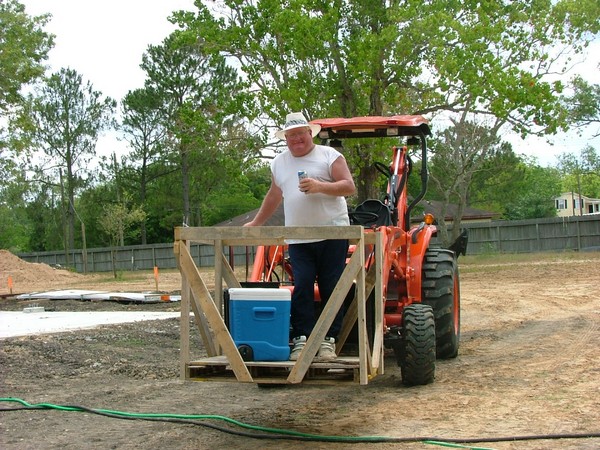Statistically speaking, the actual likelihood of any given telescopic handler being involved in any kind of building site accidents are rather on the low side. Each day, thousands are used up and down the UK Forks and there’s seldom so much as a hiccup to worry about. The problem of course comes when things do go wrong, which given the size and power of the average telescopic handler can add up to a pretty painful encounter.

But here’s the real kicker that goes along with the story – it is in fact possible to prevent no less than about 99% of telescopic handler accidents with little more than common sense and safe working practices. It’s almost unheard of for the machines themselves to just instantly malfunction for no reason – it’s instead the actions of those running and operating the business that yield the outcome.
Here’s a quick overview of some of the most common bad habits practiced across UK building sites when it comes to telescopic handlers and heavy plant in general:
Poor Quality Machines
Standards have never been higher across the board, but this doesn’t mean that there aren’t bum products doing the rounds that represent health hazards in their own right. If you buy a telescopic handler from a brand you aren’t sure you can trust or fall foul of a deal that looked and indeed proved to be too good to be true. There’s a direct link between the quality of the machine you buy and its likelihood of being involved in an accident, so don’t make the mistake of starting out with a dodgy telescopic handler in the first place.
Overlooking Training
There’s training for telescopic handler operation, but as it’s not considered 100% essential in a legal sense, it’s far too easy to be ignored by anyone that simply cannot be bothered. This kind of training exists for a reason and has the potential to weed out the bad habits that could easily lead to a rather unfortunate incident. When a worker is trained properly, then they become a more efficient worker, a safer worker and generally more productive worker on the whole. There are no downsides to official training and therefore to ignore it is to make a rather stark statement about the site’s professionalism.
Not Training the Whole Site
Another bad habit to avoid is that of only giving any thought to the actual driver of the telescopic handler. It is of course the individual operating the thing that will play the most important role in keeping things safe, but at the same time all other workers on the site need to be aware of all plant machinery and where they should and shouldn’t be walking. From keeping areas of operation clear to wearing high-visibility clothing and so on and so forth, if there’s something there with the potential to be a hazard, everyone needs to know about it.
Checklists Unchecked
All plant machinery comes with its only unique checklist which features everything that needs to be checked prior to starting it up, using it, shutting it down or putting it into storage. They’re usually very simple boxes to be ticked but each one exists as an essential list in the health and safety chain. As such, it’s wholly unacceptable to overlook or ignore the importance of any of these boxes.
Ignoring Performance Problems
There isn’t a machine in the world that will last forever without any maintenance – never has been and never will be. As such, it’s an inevitable fact that even the best telescopic handler on the market will sooner or later need a touch of time and attention at the hands of a trained and qualified mechanic or technician. To ignore performance issues is to ignore what could be the warning sign of something much more serious and a potential accident waiting to happen.
Misinterpreting Warning Signs
And on the subject of warning signs, there are quite a few to be on the lookout for and in every instance should be taken seriously. From strange noises to overheating to anything that just doesn’t quite ‘feel’ right, it’s advisable to have anything odd checked out, rather than to allow it time to blossom into something much worse.
A Poor Service Package
Last but not least, one of the most important things to be sure of when buying a telescopic handler is the kind of aftercare package that goes along with it. You’re guaranteed to have questions to answer, concerns to address and the odd performance hiccup here and there, which in turn means you need a reliable point of contact with a name you can trust.




